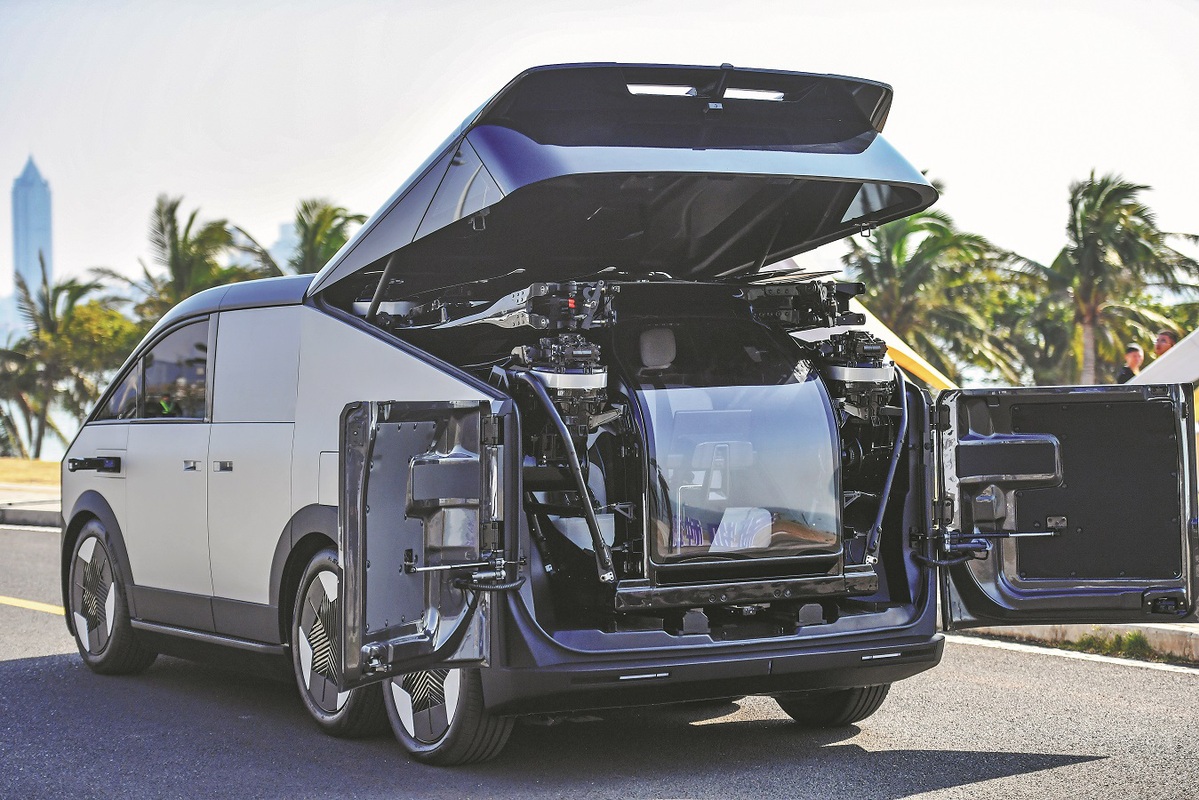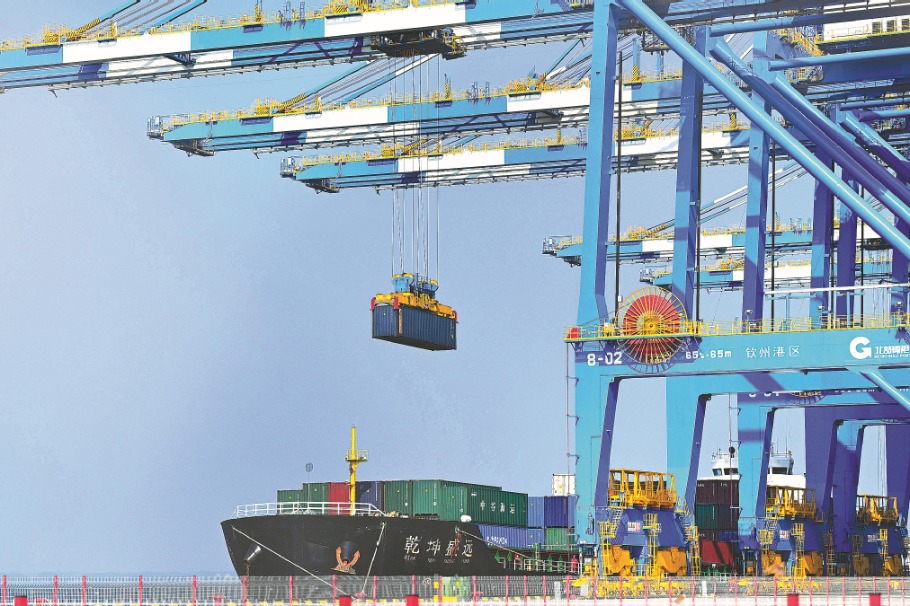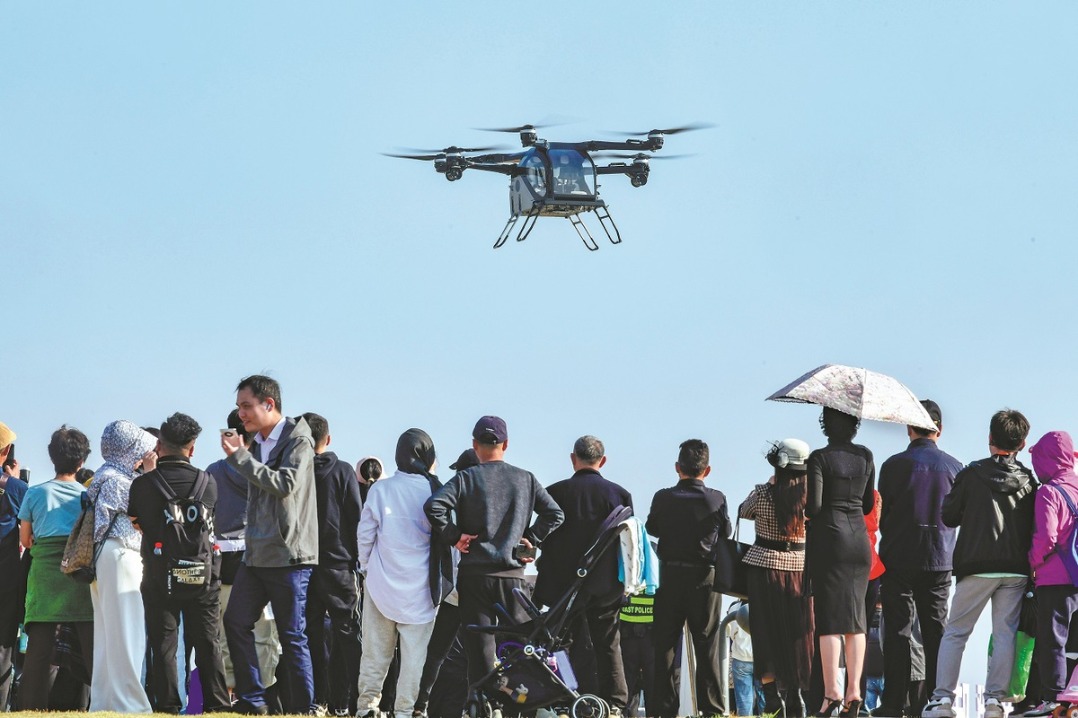Commercial flying cars gearing up for liftoff
Purchasing advanced vehicles a step closer, 'low-altitude economy' set for boost


Domestic support
The rise of the low-altitude economy in China, which includes flying cars, has been elevated by domestic technological breakthroughs and policy support.
Battery manufacturing giants such as CATL are developing high-density batteries for both electric vehicles as well as robots and flying cars.
EVE, a battery maker headquartered in Guangdong, has been selected by XPeng AeroHT to provide low-voltage batteries for its projects. The company has also been offering batteries to parent company XPeng for its electric vehicles.
Huawei's AI-powered air-traffic management system, running on Ascend AI chips, can process millions of flight paths per second and has undergone city-scale simulation tests in Shenzhen, Guangdong.
Meanwhile, materials supplier Zhongfu Shenying has slashed the production cost of T1100-grade carbon fiber, making lightweight flying car frames more economically viable.
XPeng's He said a flying car may use up to 300 kilograms of carbon fiber compound materials. "When we start production in 2026, our plant will be the one that consumes the most carbon fiber in the auto sector," he said.
China's strategic elevation of the low-altitude economy to national priority status — included in the 2024 Government Work Report for the first time — has injected momentum into the sector.
The Civil Aviation Administration of China has forecast the sector will grow to 3.5 trillion yuan by 2035.
The financial prospects have attracted many players. In December 2024, Chinese automaker GAC Group unveiled its new flying car brand, GOVY, and plans to establish production lines this year.
In the same month, car manufacturer Changan announced a strategic cooperation agreement with EHang Holdings Limited to advance flying car development, manufacturing, sales, and operations, with their joint investment to reach 20 billion yuan in five years.
EHang, headquartered in Guangdong, is a global leader in the urban air mobility segment. Changan said it expects to finish its first flying-car test flight late this year.
In February, China's first privately funded aero-engine test facility began construction in Sichuan province.
Slated for completion by 2027, the 2.25 billion yuan facility, will provide critical research and development support for next-generation aircraft, including drones, flying cars, and low-altitude vehicles.























